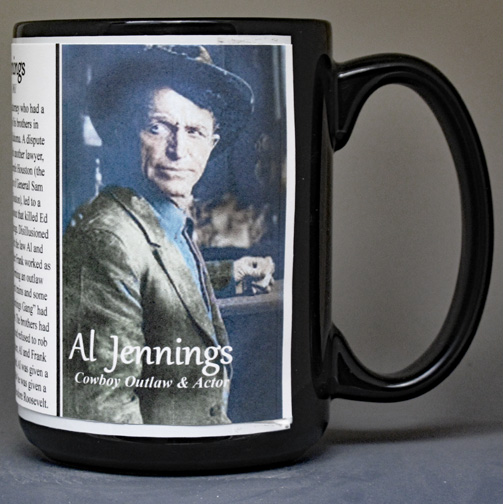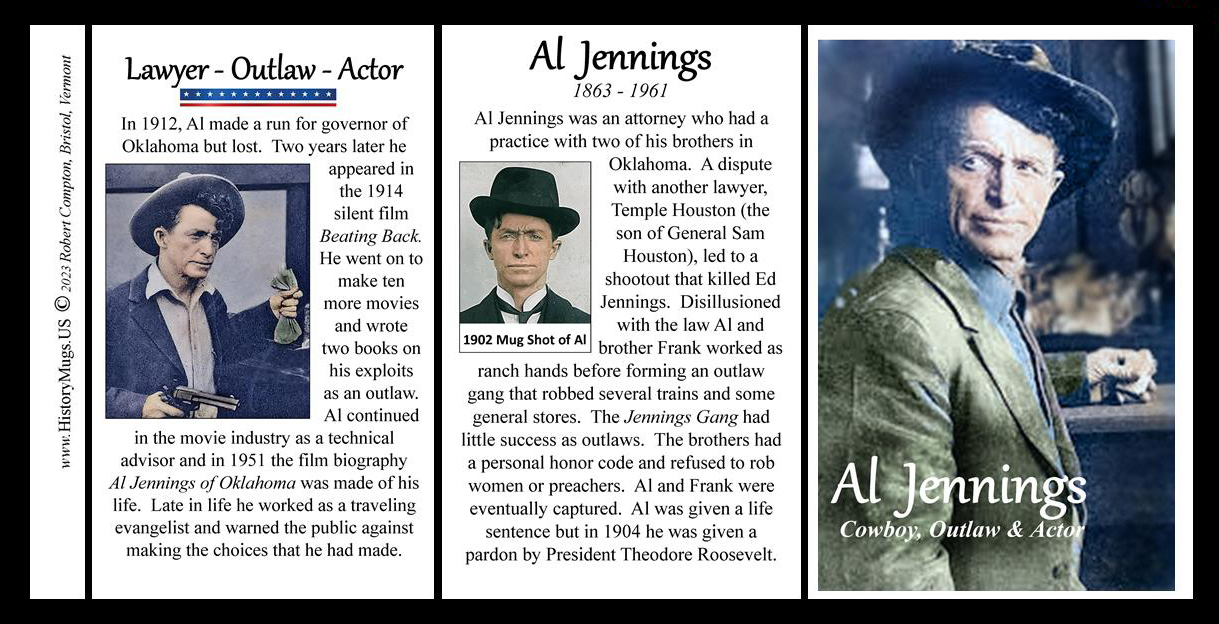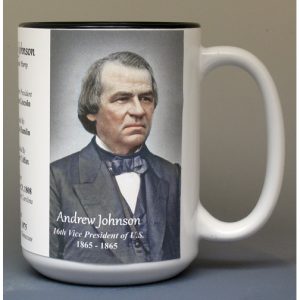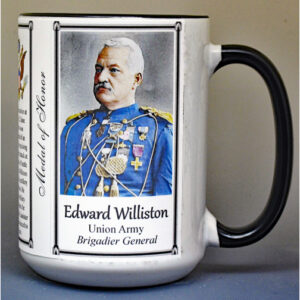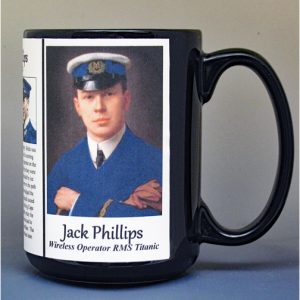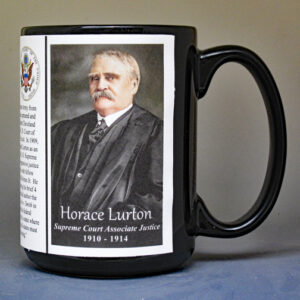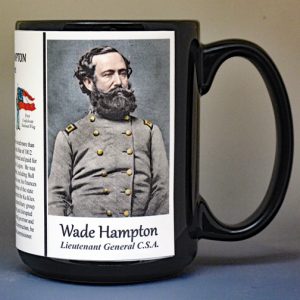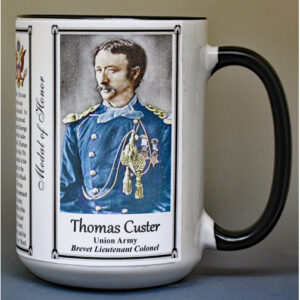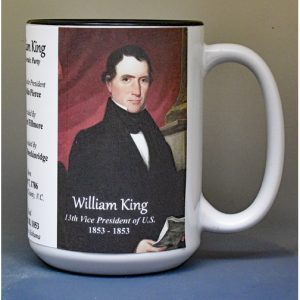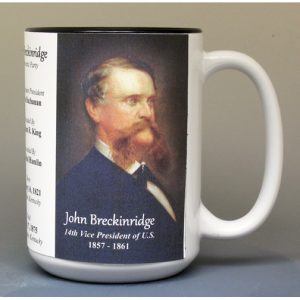Description
Al Jennings was an attorney who had a practice with two of his brothers in Oklahoma. A dispute with another lawyer, Temple Houston (the son of General Sam Houston), led to a shootout that killed Ed Jennings. Disillusioned with the law Al and brother Frank worked as ranch hands before forming an outlaw gang that robbed several trains and some general stores. The Jennings Gang had little success as outlaws. The brothers had a personal honor code and refused to rob women or preachers. Al and Frank were eventually captured. Al Jennings was given a life sentence but in 1904 he was given a pardon by President Theodore Roosevelt.
Lawyer – Outlaw – Actor
In 1912, Al Jennings made a run for governor of Oklahoma but lost. Two years later he appeared in the 1914 silent film Beating Back. He went on to make ten more movies and wrote two books on his exploits as an outlaw. Al continued in the movie industry as a technical advisor and in 1951 the film biography Al Jennings of Oklahoma was made of his life. Late in life he worked as a traveling evangelist and warned the public against making the choices that he had made.
Silent Films
The term “silent film” is somewhat of a misnomer, as silent films were almost always accompanied by a pianist, organist, or even a small orchestra. Music was considered essential, contributing atmosphere and giving the audience vital emotional cues. The silent era began in 1894 and was most productive from the 1910s to the late 1920s. Perhaps 75% of silent films have been lost because the nitrate film used was unstable and flammable. The term “silent films,” is a retronym, a term created retroactively to distinguish it from “talking pictures” and “sound films.”
This Al Jennings History Mug is part of our Silent Film Series which includes many unique individuals.
The biographical History Mugs were created to teach and inspire individuals to learn about our diverse and interesting history. The biographies were researched and written by history enthusiast, Robert Compton. He colorized most of the historic photos and images used on the mugs, which were originally black and white or sepia tone. The images and biographies are imprinted on mugs at his studio in rural Vermont.
- Mugs are food and microwave safe.
- To preserve photographic quality we recommend hand washing.
- Mugs are usually shipped within 3-5 days.

